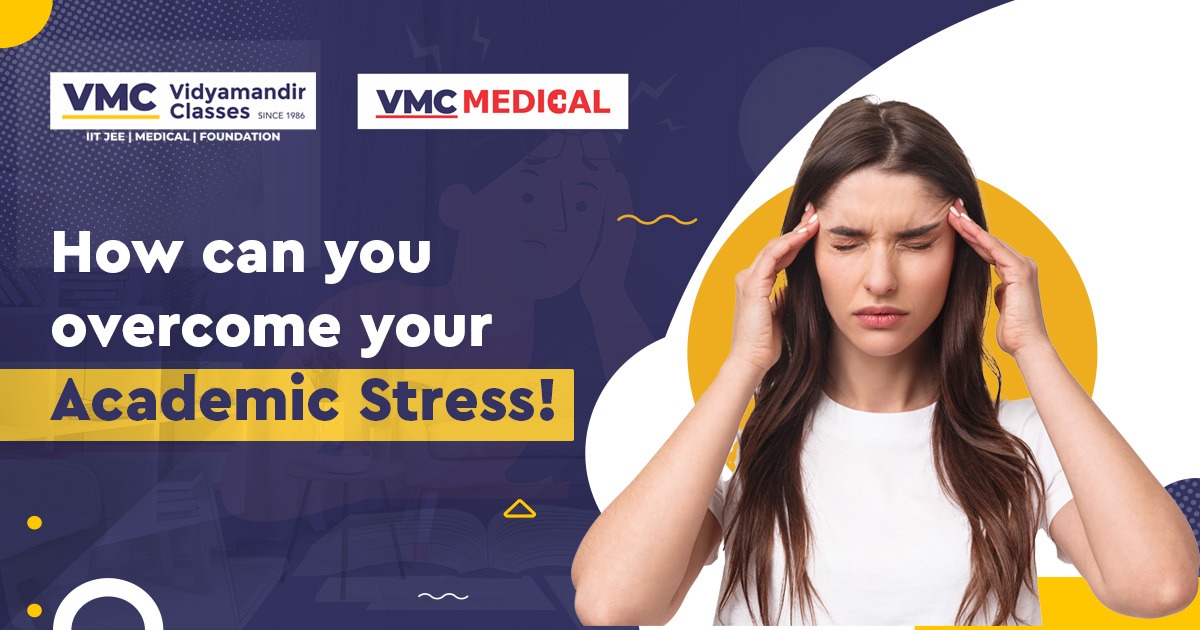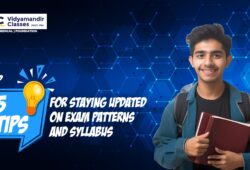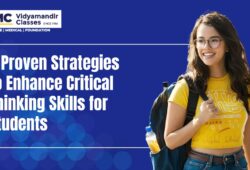How can you overcome your Academic Stress!
 Posted On
Posted On
367 total views, 2 views today
Due to globalization, students now have access to all of the crucial lessons that are covered in the classroom, but there are still some issues that need to be addressed, such as “how to deal with your emotions and problems in general?” Every youngster must control their emotional development during this critical time because it will ultimately effect the rest of their lives.
Students often avoid their regular routines when emotions conflict with their competence beliefs, social interactions, or academic work that is stagnant. Students go through a period of intense tension and emotional outbursts during this time. We need to promote certain strategies to help them control their erratic emotions, which will aid them in their academics and help them retain their social presence. This will help to calm down these conflicted feelings and tremors. Exerting their own sovereignty ensures that they will always possess the self-control and management abilities required to lead through life’s most important milestones.
Self-control
Students should practice self-regulation on a regular basis. Students occasionally experience indecision at numerous turning points with varied events and circumstances. To maintain a healthy balance, students should concentrate on their health, education, jobs, or relationships. Children who learn self-control and how to make wise decisions perform better in social and academic settings than those who are frequently irrationally angry, aggressive, or impulsive. Proper counselling of students is essential for controlling their behavior. We can plan this using “self-talk,” a strategy that allows for self-reflection and is very effective when applied by students of all ages to consciously self-regulate and guide their behavior while learning.
Strengthening your own goal
While holidays and vacations give students the opportunity to relax, they often unintentionally allow their academic performance to slip. This is where the self-reinforcement approach is used. This will help link long-term and short-term objectives. Create a target for yourself and set your own goals to help you succeed and develop self-motivation. For instance, a student might decide to watch a half-hour TV show after every two hours of study. Recently, we’ve noticed that there are lots of e-learning programs for children that encourages students to learn online. This is a platform where a student automatically sets his goals for the amount of time and classes he will attend. The student feels refreshed after achieving the goal, which eventually encourages better work and time management.
Placing priorities first
We all have options for choosing the best ones, from food to fashion, so why not in our academic pursuits as well. Undoubtedly, in order to meet our immediate needs, we must prepare how we will handle matters of greater importance. Nothing, in my opinion, can dominate our curriculum. It can be difficult to strike a balance between our schoolwork and enjoyable pastimes. Students prioritize the work they must accomplish (in order to attain a desired objective, such as CBSE papers) over the work they may not necessarily need to do, much like the rest of us. The stages would be to rationalize the daily activities you engage in, fewer urgent tasks should be completed; short tasks should be completed first, and essential tasks should be filtered out.
Willingness to Learn
It’s always healthy to mix work with play. You must draw knowledge from the enjoyment you have. E-learning or online learning is the current trend in education. A youngster who is dedicated to learning will always develop a wide range of skills and understand that education is a deliberate, active process in which they take the initiative. The virtual classroom can undoubtedly be a leisure activity that will break up the monotony of the classroom and promote beneficial learning.
Work assiduously with teachers
Communication might be simple if you and your teachers can get along. Students are less anxious to make inquiries or counterarguments. It might help them do better in class and in their social lives.
Help Others Learn By Teaching Them
A topic must be thoroughly understood in order to be taught. It enhances your presentation abilities and helps you discover various communication techniques.
Eliminate Study Burnout
Students who don’t practice good habits or who don’t strike a healthy work-life balance end up working long hours. Your mind can be refreshed through regular exercise, eating foods that are excellent for the brain, practicing appropriate study habits with breaks in between, and getting enough sleep.
Final Thoughts
Simply put, everyone experiences stress to varying degrees. Not to denigrate the term “stress,” but it can assist pupils gain the coping mechanisms and adaptation strategies they need to deal with novel challenges and potentially dangerous situations. The use of healthy methods will assist in overcoming all formidable challenges. All students will reportedly benefit from these simple strategies for handling ambiguous circumstances.
Due to globalization, students now have access to all of the crucial lessons that are covered in the classroom, but there are still some issues that need to be addressed, such as “how to deal with your emotions and problems in general?” Every youngster must control their emotional development during this critical time because it will ultimately effect the rest of their lives.
Students often avoid their regular routines when emotions conflict with their competence beliefs, social interactions, or academic work that is stagnant. Students go through a period of intense tension and emotional outbursts during this time. We need to promote certain strategies to help them control their erratic emotions, which will aid them in their academics and help them retain their social presence. This will help to calm down these conflicted feelings and tremors. Exerting their own sovereignty ensures that they will always possess the self-control and management abilities required to lead through life’s most important milestones.
Self-control
Students should practice self-regulation on a regular basis. Students occasionally experience indecision at numerous turning points with varied events and circumstances. To maintain a healthy balance, students should concentrate on their health, education, jobs, or relationships. Children who learn self-control and how to make wise decisions perform better in social and academic settings than those who are frequently irrationally angry, aggressive, or impulsive. Proper counselling of students is essential for controlling their behavior. We can plan this using “self-talk,” a strategy that allows for self-reflection and is very effective when applied by students of all ages to consciously self-regulate and guide their behavior while learning.
Strengthening your own goal
While holidays and vacations give students the opportunity to relax, they often unintentionally allow their academic performance to slip. This is where the self-reinforcement approach is used. This will help link long-term and short-term objectives. Create a target for yourself and set your own goals to help you succeed and develop self-motivation. For instance, a student might decide to watch a half-hour TV show after every two hours of study. Recently, we’ve noticed that there are lots of e-learning programs for children that encourages students to learn online. This is a platform where a student automatically sets his goals for the amount of time and classes he will attend. The student feels refreshed after achieving the goal, which eventually encourages better work and time management.
Placing priorities first
We all have options for choosing the best ones, from food to fashion, so why not in our academic pursuits as well. Undoubtedly, in order to meet our immediate needs, we must prepare how we will handle matters of greater importance. Nothing, in my opinion, can dominate our curriculum. It can be difficult to strike a balance between our schoolwork and enjoyable pastimes. Students prioritize the work they must accomplish (in order to attain a desired objective, such as CBSE papers) over the work they may not necessarily need to do, much like the rest of us. The stages would be to rationalize the daily activities you engage in, fewer urgent tasks should be completed; short tasks should be completed first, and essential tasks should be filtered out.
Willingness to Learn
It’s always healthy to mix work with play. You must draw knowledge from the enjoyment you have. E-learning or online learning is the current trend in education. A youngster who is dedicated to learning will always develop a wide range of skills and understand that education is a deliberate, active process in which they take the initiative. The virtual classroom can undoubtedly be a leisure activity that will break up the monotony of the classroom and promote beneficial learning.
Work assiduously with teachers
Communication might be simple if you and your teachers can get along. Students are less anxious to make inquiries or counterarguments. It might help them do better in class and in their social lives.
Help Others Learn By Teaching Them
A topic must be thoroughly understood in order to be taught. It enhances your presentation abilities and helps you discover various communication techniques.
Eliminate Study Burnout
Students who don’t practice good habits or who don’t strike a healthy work-life balance end up working long hours. Your mind can be refreshed through regular exercise, eating foods that are excellent for the brain, practicing appropriate study habits with breaks in between, and getting enough sleep.
Final Thoughts
Simply put, everyone experiences stress to varying degrees. Not to denigrate the term “stress,” but it can assist pupils gain the coping mechanisms and adaptation strategies they need to deal with novel challenges and potentially dangerous situations. The use of healthy methods will assist in overcoming all formidable challenges. All students will reportedly benefit from these simple strategies for handling ambiguous circumstances.



